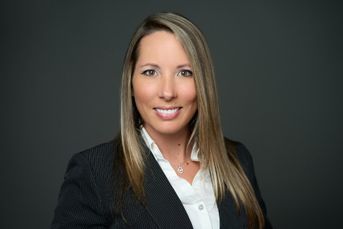Benefits of cross-selling are too big for RPAs to ignore

Demand for new revenue sources points to relationships
At the recent InvestmentNews RPA Aggregator Roundtable and think tank, leading advisers almost unanimously agreed that cross-selling wealth management services within their 401(k) and 403(b) plans was a big opportunity. Why the focus and why now?
Part of the reason for the shift, as Fielding Miller, CEO at CAPTRUST explained, is that his advisers’ participant fees are dwarfing plan fees. While asset-based fees for Triple F services (fees, funds and fiduciary) have been declining with many advisers moving to a flat-fee arrangement, the interest by plan sponsors to help employees with financial education and advice has grown with most sponsors willing to pay advisers extra for those services.
So the demand is there as well as the need for RPAs to shift revenue sources. But what’s different now?
RPAs can no longer afford to ignore the relationships they enjoy within their DC plans whether it’s the C-Suite, HR contacts or the employees. It’s partly why benefit firms like Hub International are buying up retirement practices like Sheridan Road to leverage the relationships to cross-sell benefits. Some benefit firms already in the business, like NFP, get it, while others still struggle with cross-selling.
But opportunity does not always translate into success. RPAs must figure out an efficient and profitable business model. Mr. Miller said he views the participant services as a pyramid which includes:
1. Financial wellness for everyone
2. One-on-one (or three) advice for 20%
3. Wealth management for high-net-worth employees
Mr. Miller advised the group to leverage the financial wellness programs of large providers that can afford to develop and invest in them. The jury is still out on the effectiveness of financial wellness but the demand to provide some support for all employees is growing.
One-on-one advice is much more effective but costly. Mr. Miller said that CAPTRUST charges $20-$50 per employee with the assumption that 20% will use it.
At the top of the pyramid is wealth management, usually for high-net-worth investors. Wealth management currently accounts for 40% of CAPTRUST‘s revenue. Their wealth management firms partner with retirement-focused firms to leverage opportunities in DC plans.
Beyond what wealth management means as a cross-sell opportunity for RPAs, the implications are profound for the industry. It’s a way for advisers to not just hold their fees but actually expand them. No longer able to charge large asset-based fees that plan sponsors may not notice, most HR and senior management are more than willing to pay advisers for services that benefit the company and its employees.
Which is why Mr. Miller’s pyramid is so important. Plan sponsors want coverage for all employees but it may not be feasible to meet and work with all of them. Financial wellness may be the way to address those concerns as the fintech and retirement industries develop something that is effective.
The move to financial planning wealth management addresses the major issue within DC plans — how to help people to replace income for retirement. While the ideal 401(k) or auto plan answers most of the accumulation questions, employees still need help to manage debt and outside assets, as well as help in retirement or during the decumulation phase. Getting to investors at the workplace is ideal for many reasons.
Emerging RPAs, especially those that entered the DC business to accommodate a wealth management client but never intend to specialize, are starting to realize how their position as a plan adviser can help them attract more wealth management business while protecting the relationship.
The almost 200,000 advisers working or getting paid on a DC plan that never intended to focus on retirement plans can be a great resource for smaller plan sponsors that specialists cannot afford to cover if properly trained and equipped. They might also be in a better position to handle lower account balance IRA rollovers than specialist RPAs.
Wealth managers with a few plans need to better leverage their position as the plan adviser. Seems like a convergence that can benefit advisers, employers and employees — most of whom will never speak with another financial adviser.
Learn more about reprints and licensing for this article.







